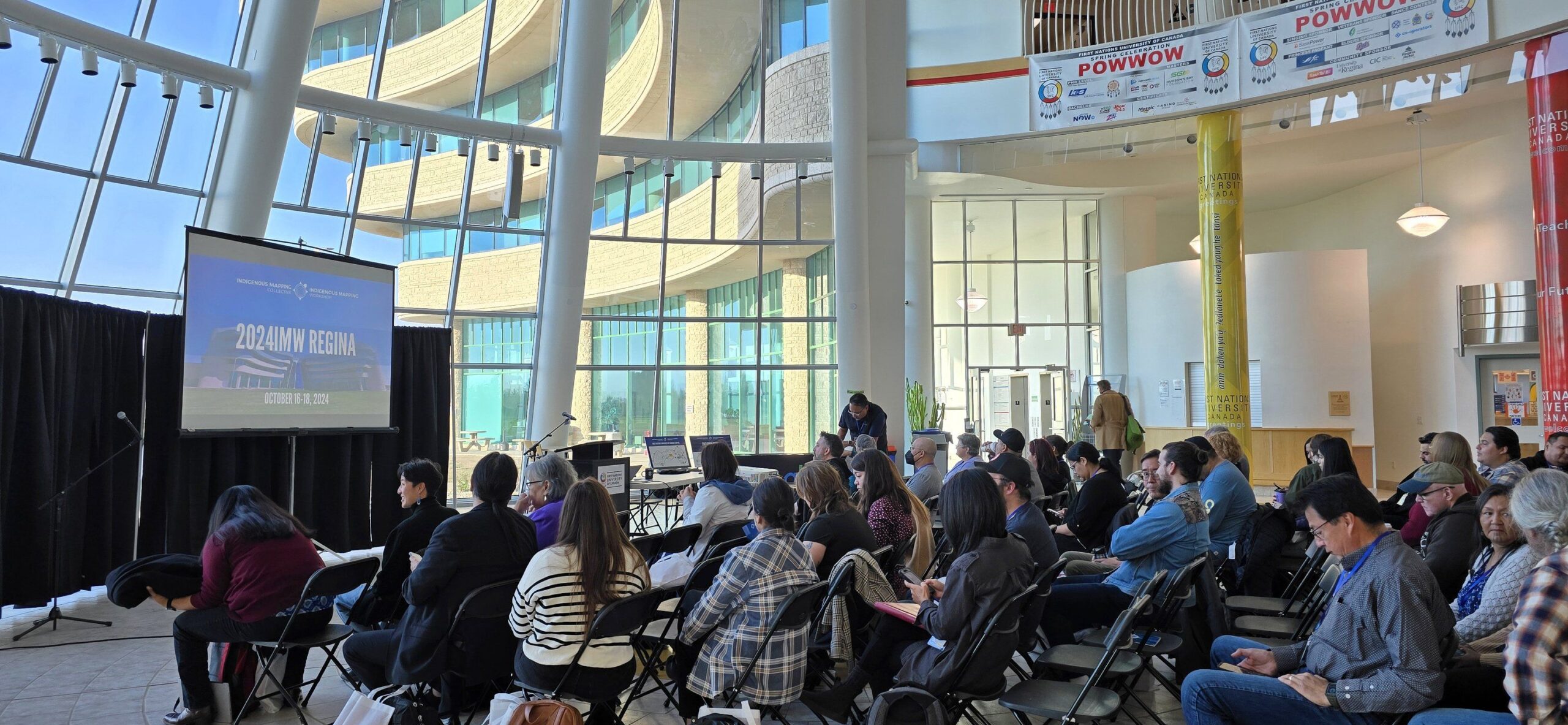
The First Nations University of Canada (FNUniv) Regina Campus hosted an inspiring and impactful Indigenous Mapping Workshop from October 16 to 18. This transformative event brought together a diverse group of participants passionate about Indigenous land preservation, cultural storytelling, and safeguarding Indigenous rights through geospatial technology. Organized by the Indigenous Mapping Collective with support from the Firelight Group, the workshop created a collaborative environment for learning, networking, and sharing knowledge on the use of modern mapping tools.
The workshop offered in-depth training on advanced geospatial technologies, including Google Earth Pro, Esri ArcGIS, and satellite remote sensing. Participants, ranging from students to community leaders, had hands-on access to these powerful tools, which have become essential in capturing, mapping, and analyzing data that represents Indigenous histories and territories. With guidance from the Indigenous Mapping Collective’s experts, attendees gained practical skills to navigate and apply these technologies in their own projects and communities, ultimately supporting efforts to maintain sovereignty over their lands and resources.
This year’s workshop highlighted various innovative ways in which geospatial tools can document Indigenous narratives, map traditional territories, and support ecological preservation. The event underscored the importance of digital mapping as an ally in the fight for land and water protection, and how these tools can help articulate Indigenous stories for future generations. Participants engaged in interactive sessions where they practiced creating their own maps, explored applications of spatial data, and learned about Indigenous-led initiatives using geospatial tools for land reclamation, cultural documentation, and advocacy.
Beyond technical training, the workshop was a platform for Indigenous mappers to connect and collaborate on shared goals. Many participants shared personal experiences and stories, creating a space for dialogue on challenges and successes in Indigenous mapping. This sense of community resonated strongly throughout the event, reinforcing the collective commitment to upholding Indigenous rights, culture, and history through technology.
FNUniv is excited to continue supporting and participating in the Indigenous Mapping Collective, joining the global network of Indigenous mappers who are advancing this critical work. The university looks forward to future workshops and collaborative efforts aimed at empowering Indigenous communities with cutting-edge tools and knowledge to protect their heritage and shape their futures.
As FNUniv reflects on this successful event, it reinforces its dedication to fostering Indigenous-led innovation, education, and knowledge-sharing as essential pathways to resilience and self-determination. The Indigenous Mapping Workshop serves as a powerful reminder of the role that geospatial technology plays in bridging traditional knowledge with modern mapping, offering new possibilities for Indigenous land stewardship and cultural preservation.